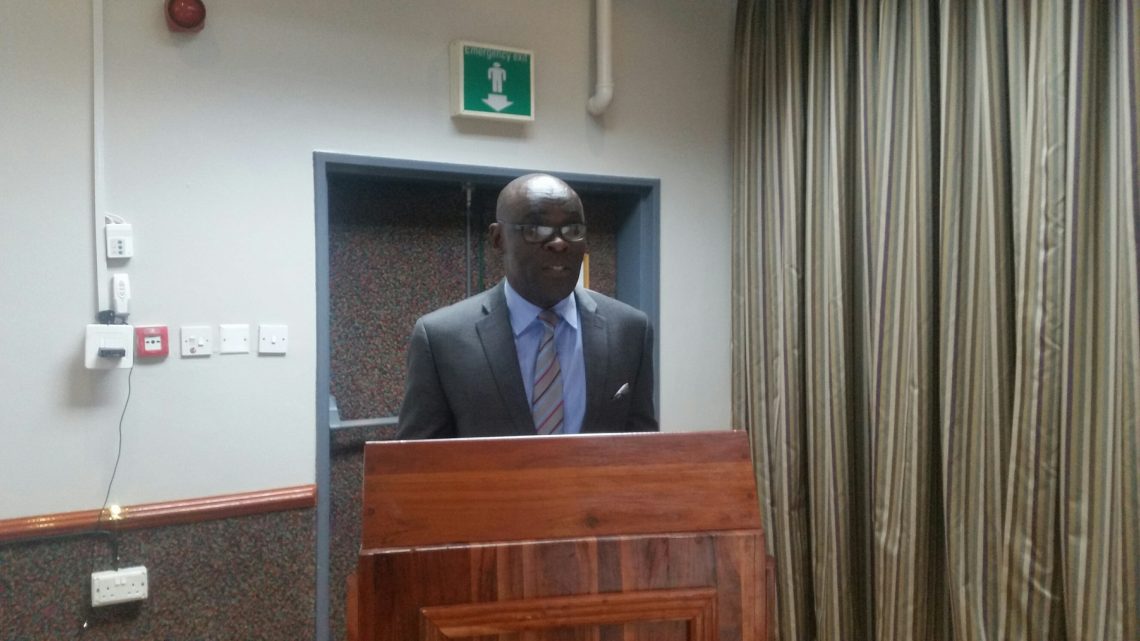By Byron Mutingwende
The Marange Development Trust has bemoaned the indiscriminate destruction of the environment by miners in the diamond area of Manicaland.
“Before the discovery of diamond, families used to depend on crop cultivation, breeding goats, cattle and chickens, selling wild fruit, charcoal and gardening. However with mining, there is widespread water and dust pollution and the mining activities have left gullies everywhere. We no longer have the land for farming in Marange, “ said Malvern Mudiwa, the Chairperson of Marange Development Trust.
Apart from the environmental degradation and rampant pollution, the people of Marange were relocated without consultation and compensation. People are also restricted to move to their traditional places.
“Anjin fenced their mining area and after finishing mining, they removed the fencing and left open gullies. Our livestock is being lost. A child from the Tonhorai area attempted to swim in one of the gullies and was trapped by mud and lost his life in the water-filled gully. Residents are arrested if they mill around the area without identification documents. ZCDT has also created a demarcation. A vehicle permit is issued to drivers who leive in the area whop have to fork out at least $40 per month,” Mudiwa said.
Locals are also restricted from developing business enterprises. Many vehicles are confiscated by mining security companies who force locals to part with huge sums of money for their release. Mudiwa said unarmed civilians are being shot in cold blood at the mines.
“A security guard from the local area called Gwite was shot in cold blood. That was an unnecessary loss of life. Even if he had committed a crime, he was not supposed to die. It’s sad when those accused of looting $15 billion are roaming scot-free when locals are being killed indiscriminately.
“It’s sad we go to Mutambara or Harare to seek specialist medication yet we have the diamonds which rake in a lot of money. Unemployment among the locals is rampant despite the teeming diamonds,” Mudiwa added.
Commenting on the same subject, Edgar Mbwembwe, a member of the Parliamentary Portfolio Committee on Environment, Water, Climate and Hospitality Industry said miners were not concerned with the environmental degradation and the ecological effects caused by the mining operations.
Mbwembwe revealed that the University of Zimbabwe confirmed that mining companies were polluting rivers since the commencement of commercial diamond mining activities in Marange in September 2009.
“The report concluded that the water in rivers is heavily contaminated to such an extent that communities cannot use the water for drinking purposes and is unsuitable for domestic consumption.
“In the same report, the researchers also concluded that villagers could develop cancer due to heavy presence of chromium and nickel in the river. I want to reiterate that these facts were gathered through reading researches only. There was no substantiation of these facts by the environment committee through a rigorous inquiry on the issue to get to the bottom of the matter,” Mbwembwe said.
Members of the environment committee bemoaned that mining companies in Chiadzwa did not fulfil their obligation of rehabilitating disused mines. Given that all the companies in Marange were into alluvial mining using the open cast system, there was massive clearance of forests.
The clearance of land and forests in preference to diamond mining also meant loss of wildlife habitat, human habitations and agricultural fields for the surrounding communities, which were their means of earning a living.
“It is demoralising to note that no plans were put in place to transfer wildlife from the mining concessions to areas that are wildlife friendly, let alone to study the area and identify animal species found there. As legislators, we are aware that today there is no sign of wildlife in the area measuring over 120 000 hectares and no one dared to inquire what has happened to animal life in Marange,” Mbwembwe added.
There are calls for the establishment of an economic, social and environmental plan for the implementation of sustainable and enforceable mining policies and legislation that help to sustain the environment and communities.
Bernard Kusena, the Projects Administrator of Marange Development Trust said his organization has engaged Environmental Management Agency (EMA), District Administrator’s office and Mutare Rural District Council in an effort to find a lasting solution on environmental, social and cultural challenges caused by mining companies in Chiadzwa.
“We had a joint programme with EMA on the Environmental Awareness Campaign Workshop in Betera ward 29 on the 20th April 2017 MDT wrote to Professor Francis Gudyanga, the Zimbabwe Consolidated Diamond Company (ZCDC) Board Chairperson on forced evictions and dust pollution in Tinoengana Village, Chiadzwa. We cited section 73 of Zimbabwe Constitution which gives right to a clean environment,” Kusena said.
MDT wrote a letter on the 6th of September 2016, to the for Minister of Mines and Mining Development Hon Walter Chidhakwa. The letter was handed to his Deputy Hon Freddy Moyo who promised to deliver. The letter was meant to inform the Minister the manner in which ZCDC was mining in Chiadzwa. ZCDC was mining very close to the homesteads leaving unprotected gullies and also built a mountain of earth behind homesteads, which was causing a lot of dust to the community. It also engaged the Zimbabwe High Court seeking audience of stopping ZCDC from mining until it got an EIA certificate from EMA.
